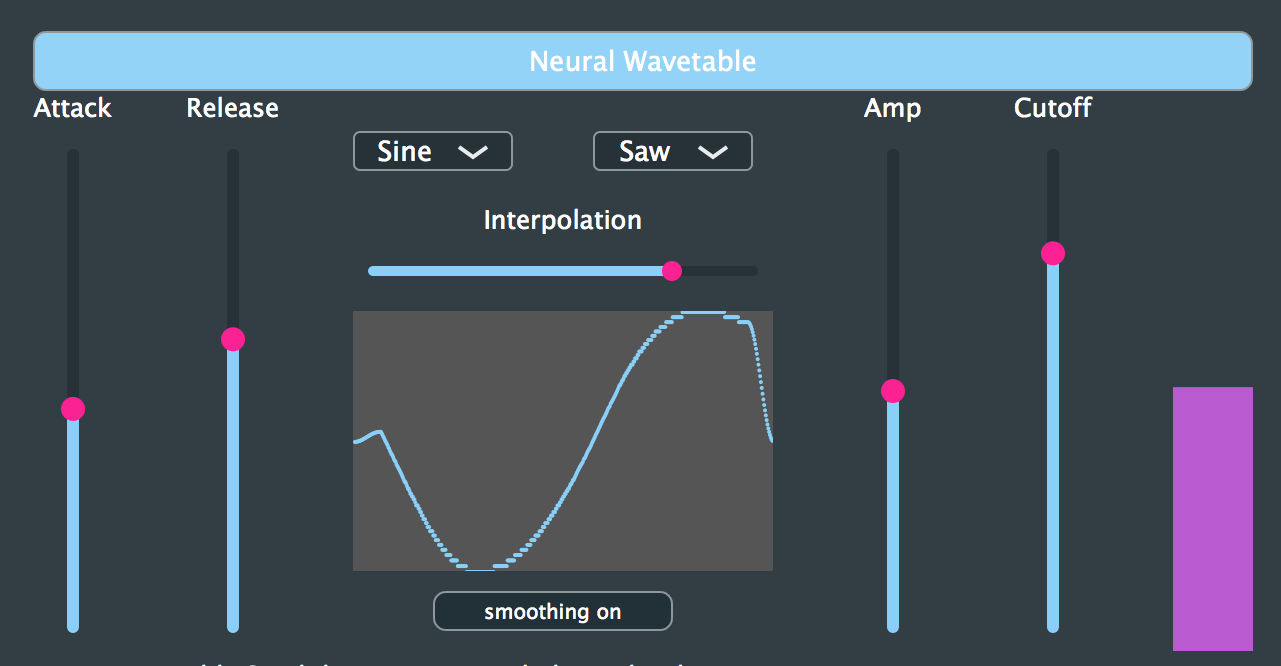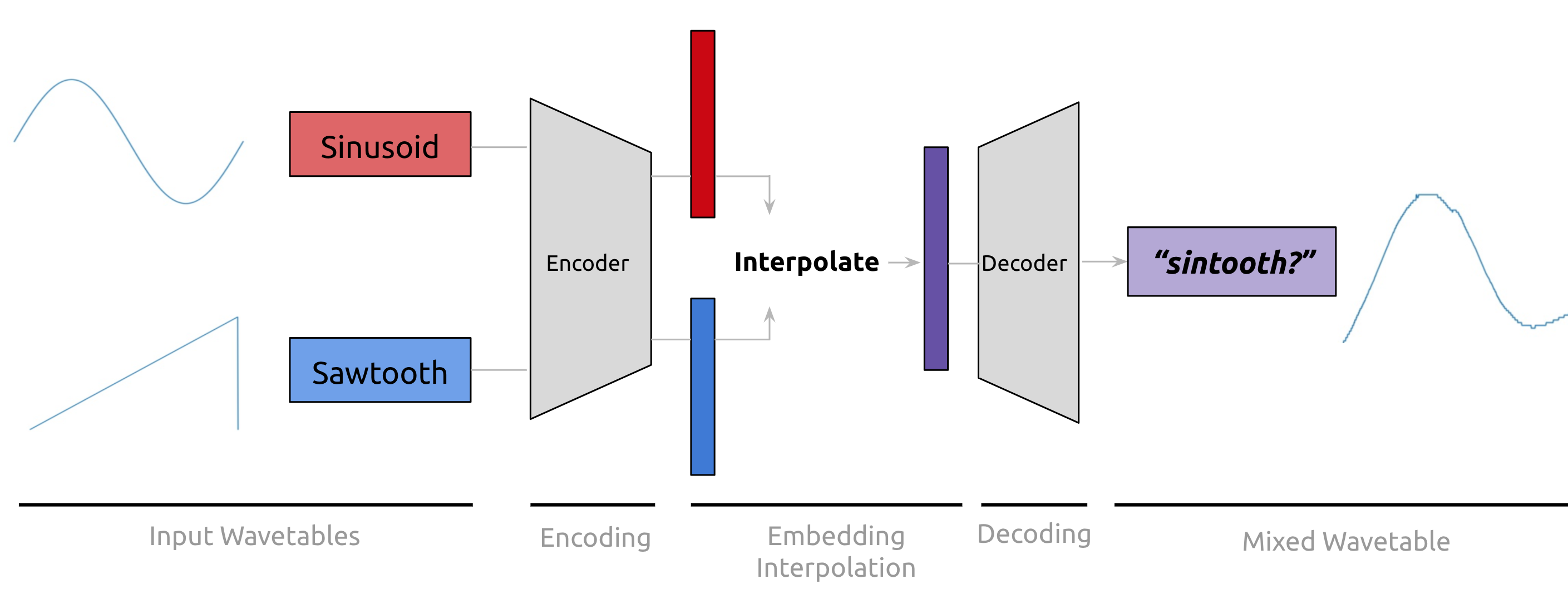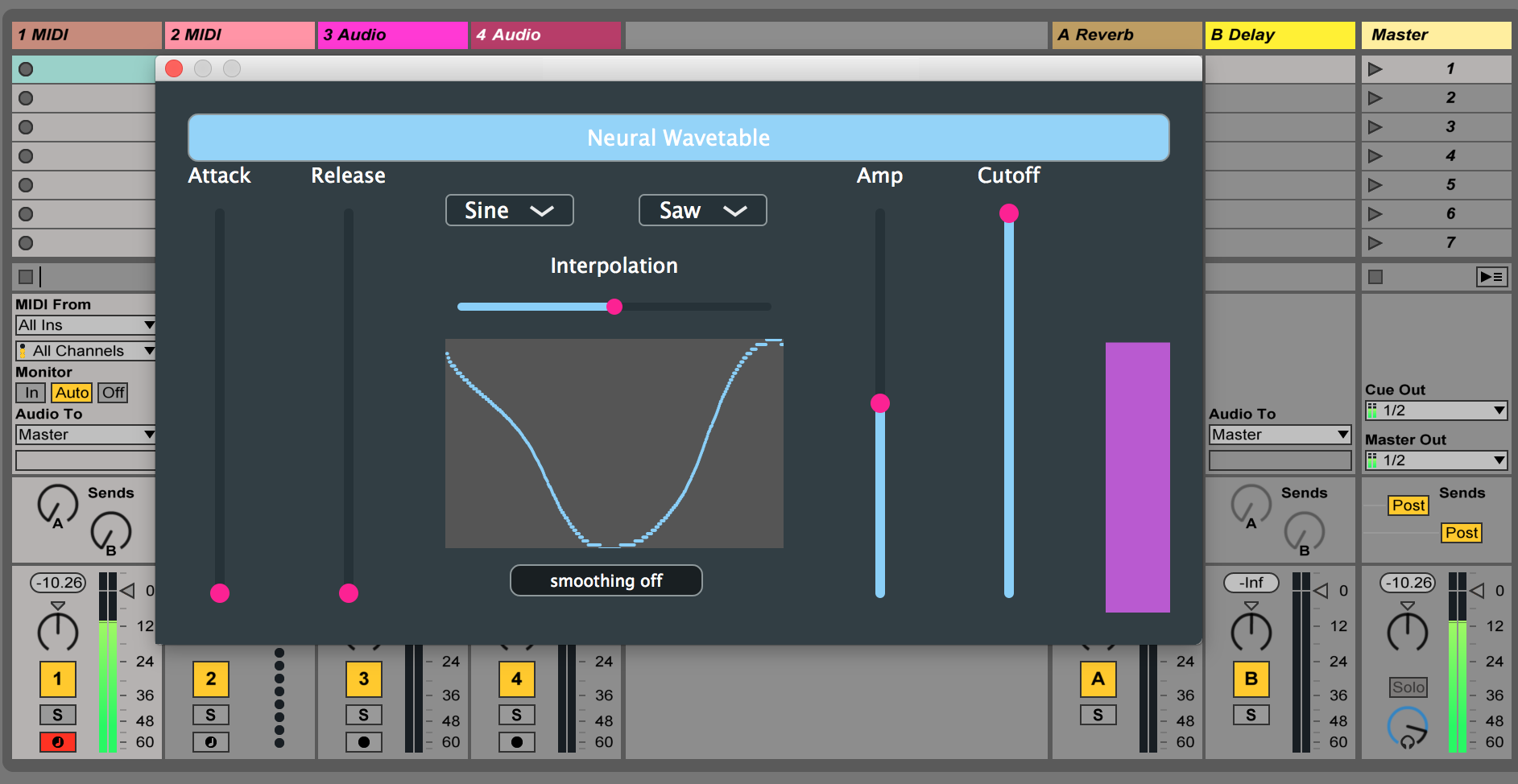Present in NIPS 2018 Workshop on Machine Learning for Creativity and Design. Paper link
A wavetable synthesizer VST that uses WaveNet to interpolate between different wavetables. We include two formats of this synthesizer, a plug-and-play VST you can download and play RIGHT NOW in your DAW! For the more technically inclined, we also include all our source python and c++ code using tensorflow and JUCE for you to experiment and build upon. Happy music-making!
If you listen and produce electronic music, you've already heard wavetable synthesis in action. A popular wavetable synthesizer used by many electronic artists is Serum. The new Ableton Live 10 also features a new Wavetable synthesizer called...you guessed it: Wavetable. The synthesizer works by using a variety of "wavetables" that define one period of the waveform. This reference wavetable is then "read" at different speeds to produce the desired pitch of sound. Check out this YouTube video for an explanation!
WaveNet is the future of sound! It is a neural network architecture that has revolutionized many aspects of audio, including groundbreaking speech synthesis and new kinds of synthesis techniques.
We use WaveNet to encode some basic wavetables like a Sin, Triangle and Sawtooth - all with length 512 - into WaveNet's latent space. Each of these sounds are now represented by a real-valued "embedding vector" of length 16. This vector encapsulates sonic and timbral characteristics of the original wavetable. We then interpolate between these wavetables, not by adding or subtracting them directly, but by mixing their latent vectors. For example, 30% sin and 70% saw means "find the embedding that is 30% away from the vector of sin and 70% away from the vector of saw". We then use the newly interpolated vector to decode back into the original wavetable of length 512. To make the decoded wavetables play nice, we normalize all wavetables and also include an option to "smooth" the wave.
Download the VST on this link.
Tutorial for installing VST plugins for Ableton on Mac /Windows.
- Download the latest version of JUCE from https://shop.juce.com/get-juce
- Clone our git repository
git clone https://github.com/RichardYang40148/Neural_Wavetable_Synthesizer.git cdinto the directory- Click on the
WaveNetWaveTable.jucerfile. - Click on the XCode icon to open the project in XCode. Build the Project. All dependancies are already included in this repo.
- Load the VST in a DAW!
Lamtharn (Hanoi) Hantrakul and Richard Yang
Built for Alexander Lerch's Audio Software Engineering Class Spring 2018, Georgia Tech Center for Music Technology.



